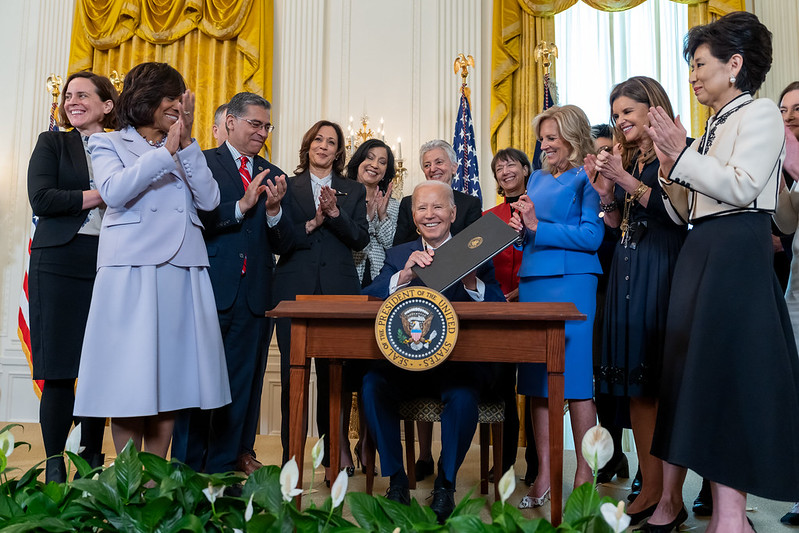 We are pleased to provide our readers with important new updates regarding President Biden’s recent executive order that creates a pathway to permanent residency for undocumented spouses of U.S. Citizens who have been living in the U.S. for at least 10 years, as of June 17, 2024.
We are pleased to provide our readers with important new updates regarding President Biden’s recent executive order that creates a pathway to permanent residency for undocumented spouses of U.S. Citizens who have been living in the U.S. for at least 10 years, as of June 17, 2024.
Those who qualify can apply for “parole in place” a new discretionary program to legalize their status while remaining in the United States.
This program is designed to promote family unity, while eliminating the need for undocumented spouses of U.S. Citizens to travel outside the United States to legalize their status through the extreme hardship “waiver” process.
Eligibility Requirements
To be considered for a discretionary grant of parole, spouses of U.S. citizens must:
- Be present in the United States without admission or parole (entered without inspection);
- Have been continuously present in the United States for at least 10 years as of June 17, 2024;
- Have a legally valid marriage to a U.S. citizen as of June 17, 2024;
- Not have any disqualifying criminal history or otherwise constitute a threat to national security or public safety; and
- Otherwise merit a favorable exercise of discretion.
Noncitizen children are also eligible for parole if, as of June 17, 2024, they were physically present in the United States without admission or parole and have a qualifying stepchild relationship with the U.S. citizen.
For complete details regarding the program, please visit our parole in place webpage here.
What We Know
Although we do not yet know what forms must be filed along with the associated filing fees, USCIS has announced that it will begin accepting parole applications on August 19, 2024.
More information about the application process and filing fees will soon be published in a forthcoming Federal Register notice. We will provide those details on our blog as soon as they are available.
 Visa Lawyer Blog
Visa Lawyer Blog









